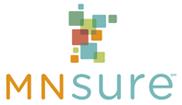Assister Network FAQ
Frequently asked questions about the Consumer Assistance Program and related topics.
Enhancements to the Affordable Care Act
General Resources
Enrollment Resources
Medical Assistance and MinnesotaCare
Frequently asked questions about the Consumer Assistance Program and related topics.
Yes. We encourage partnerships between various consumer assistance partners.
If a licensed broker does not receive payment by an insurance company or other 3rd party, they may serve as a navigator.
No. A broker company should submit a Notice of Intent listing their affiliated brokers. Navigators and certified application counselor entities have the opportunity to add individual staff to their roster after they have executed a contract with MNsure.
If you are a broker please submit the Notice of Intent.
If you are an organization wishing to partner as a navigator, in-person assister or certified application counselor entity, please review the instructions for submitting an application (PDF).
Privacy and security requirements are handled through the contract and during certification training sessions.
Per federal regulations MNsure cannot require navigators, in-person assisters or certified application counselors to carry errors and omissions coverage. However, this doesn't prohibit those entities serving as consumer assistance partners from voluntarily carrying this coverage.
No. However, if a MNsure-certified broker enrolls a consumer into a private health plan (qualified health plan or QHP) and does not have a current appointment with the particular insurance company, it will be the broker's responsibility to contact the insurance company and attain an appointment as they do today.
Brokers will continue to be compensated by the appointed insurer for sales occurring through MNsure per MN Statute section 62V.05, subdivision 3.
No. Refer to the MNsure website for further updates.
Appointments continue to be handled by the insurance companies. The broker will need to complete each insurance company's requirements for appointment if they want to sell products with that company. MNsure does not manage appointments on behalf of brokers wishing to sell through MNsure.
The Notice of Intent was meant to inform what kind of statewide coverage we can expect; where there may be too few brokers, or there is a concentration of brokers. It does not preclude delivering services outside those specific areas mentioned in your Notice of Intent.
Consumer assistance partners cannot be a health insurance issuer or issuer of stop loss insurance, a subsidiary of a health insurance issuer or issuer of stop loss insurance, or an association that includes members of, or lobbies on behalf of, the insurance industry.
No. Services provided by MNsure-certified navigators are free.
Consumer assistance partners must ensure no compensation is received directly or indirectly from any health insurance issuer in connection with the enrollment of any individuals or employees in a qualified health plan or a nonqualified health plan.
No. MNsure partners with all organizations that meet the minimum requirements, are an eligible entity and complete the application.
Please review the instructions for submitting an application (PDF).
Individuals who wish to be MNsure certified must be affiliated with a navigator, in-person assister or certified application counselor organization. This does not apply to brokers.
Yes.
Navigators cannot make the decision for an application as to which private health plan (qualified health plan or QHP) to select. However, navigators may facilitate a consumer's enrollment in a QHP by providing fair, impartial and accurate information that helps an individual make informed decisions for themselves. MNsure and the Minnesota Department of Commerce have issued a joint bulletin (PDF) regarding the type of services a consumer assister partner can provide in relation to state law.
No. Navigators and other assisters are not required to enroll a minimum number of individuals into health plans.
No. However, they should provide referral information or direct the individual to another consumer assistance partner who could provide assistance for them.
No.
No. Services provided by MNsure-certified CACs are free.
No. MNsure partners with all organizations that meet the minimum requirements, are an eligible entity and complete the application.
Hospitals and others can and should continue to offer the kind of assistance they offer now without being MNsure certified. However, MNsure encourages hospitals and other stakeholders to consider becoming CACs. MNsure training and access to MNsure consumer information (through the system and our consumer assistance partner resource center) is only available to certified partners.
Individuals who wish to be MNsure-certified must be affiliated with a navigator, in-person assister or CAC organization. This does not apply to brokers.
CACs cannot make the decision for an application as to which private health plan (qualified health plan or QHP) to select. However, CACs may facilitate a consumer's enrollment in a QHP by providing fair, impartial and accurate information that helps an individual make informed decisions for themselves. MNsure and the Minnesota Department of Commerce have issued a joint bulletin (PDF) regarding the type of services a consumer assister partner can provide in relation to state law. .
The function of MNsure is a web-based online tool. It is the expectation that assisters are technically proficient and able to navigate the internet.
No. Training is currently only available for official MNsure partners.
Training for official MNsure partners is available year-round.
Not at this time.
No. Training for brokers, navigators, in-person assisters, and certified application counselors is provided at no charge.
Every individual assisting or selling through MNsure is required to complete MNsure training and become certified.
No. MNsure certification is only necessary to sell insurance through the MNsure marketplace.
Yes. All consumer assisters, including brokers, are required to complete training and become certified before offering consumer assistance for MNsure. The training may vary depending upon the particular consumer assistance role.
